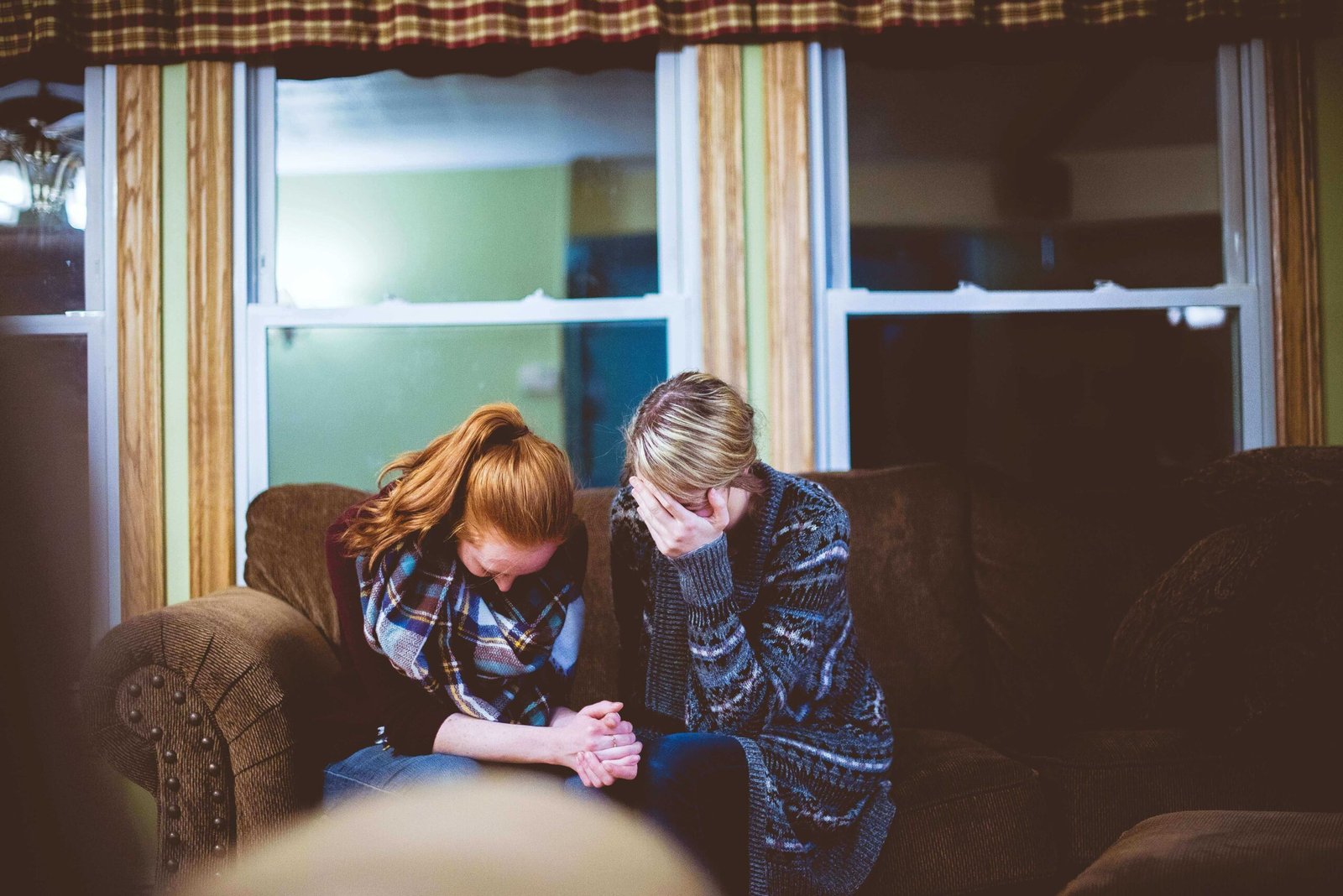

Even as someone who’s been in dating writing for years now and is in a healthy relationship of my own, this is something I still struggle with.
Odds are, if you’re reading this, you also struggle with it as well.
Everyone has experienced and will experience loss in their lives – it’s something we can’t avoid. However, the way we process loss differs from person to person.
It also depends on how old we were when we first experienced loss. While you may be questioning why you have abandonment issues if your parents are happily married, you’ll need to look beyond that.
My first loss was of my bestfriend, my grandfather. He died when I was 10-years-old and was someone I spent every day with. This was a huge loss in my life, one I didn’t really realize until in my twenties.
From that loss, it scarred it – which is completely fine; it’s going to happen. However, what’s important is we understand how those scars affect our lives and relationships (yeah, who knew dating writing was so layered).

However, it’s important to know that not everyone who experiences loss will have abandonment issues – the two are not mutually exclusive. Plus, people have varying degrees of emotional distress from abandonment issues. In other words, we’re all different.
I struggle with abandonment issues and fear my partner or parents will disappear from life. While it’s not something I’m over, my self-awareness and ability to communicate those fears help me.
Now, you probably want to know what the signs are of abandonment issues, well, let’s take a look.
Abandonment issues shows themselves in three types of insecure attachment. They are:
People with avoidant attachment style prevent anyone from getting too close to them. They feel unable to trust or open up to others, which makes them look distant and withdrawn.
People with anxious attachment style cope with their abandonment issues by developing close and dependent relationships with others.
They may feel anxious to do things on their own with their partner and reactive emotionally. There’s a fear their partner will leave them, which triggers their reaction.
People with disorganized attachment style struggle to maintain close relationships. They feel anxious about entering a relationship and try to avoid getting too close.
While in dating writing, we talk about this being a red flag; it’s more than that. This is a sign of abandonment issues in a person. Does it mean you’re a bad person? No. It simply means there are some things you need to explore within yourself. If you have abandonment issues, you tend to be clingy and attach to people way too soon.
Since you fear being abandoned, you will do whatever it takes to not let your partner go. However, since you’re willing to do whatever it takes, you end up being a doormat.
You try to control every situation in your relationship, while trying to avoid a negative outcome. While doing that, you allow your partner to control the relationship in fear of them leaving you.
You are constantly worried your partner is going to cheat on you.
Your fear of abandonment has you suspicious of everything your partner does and who they encounter. You want to know every step they take and who they speak to.
You come up with wild situations in your head because you don’t trust your partner. You assume they’ll do the worst to you.
You can’t be yourself because you’re constantly worried about what your partner thinks about you and if they want to end the relationship.
Rather than being single, you opt for unsatisfying relationship, even know you know they’re not good for you.
Most things on this list are examples of your self-sabotage. You fear abandonment, and while trying to do anything you can to hold your relationship together, it falls apart.
You want people to accept you, but you’re not doing it the right way. You remove your boundaries to make sure your partner gets whatever they want to be happy.
You struggle with being vulnerable and don’t express how you truly feel. Instead, you wait to see what your partner will say and side with them to avoid any conflict or disagreement.
At the end of everything, the root cause of your behavior is the deep feeling of unworthiness. You don’t feel you’re worthy of love.

Treating abandonment issues aren’t impossible, but it will take work.
The first step is understanding where your abandonment comes from and what triggers you to feel that way.
Secondly, you need to talk to your partner, friend, or family member. Feel comfortable expressing your fears to them. It will be hard at first, but with time, it will become easier to be vulnerable.
Lastly, speak to a therapist. Abandonment issues need to be explored by someone who understands them and can provide you with the right tools to treat them. While reading articles on the internet can help, your therapist will know what’s right for you.
When it comes to dating writing, I’ve written a lot. But if you really want to change, you’ll need to stop reading and take action.





If you want to increase intimacy and connection in the boudoir, here’s what you need to do.

So, if you’re reading this, there’s a chance that you’re not feeling good about your relationship. If you’re asking yourself, is my relationship toxic? It’s time to know the signs. Here are the signs of a toxic relationship.

You’ve met someone that you’re sure is the one. Now, I’m not going to tell you you’re wrong. I don’t even know you! But here’s the thing, are they really the one? Here’s how to know if you met the one.

Rather than asking are rough patches in a relationship normal, what you should be asking yourself is what’s causing them and how to overcome those rough patches.
Get real relationship and dating advice straight to your email now.